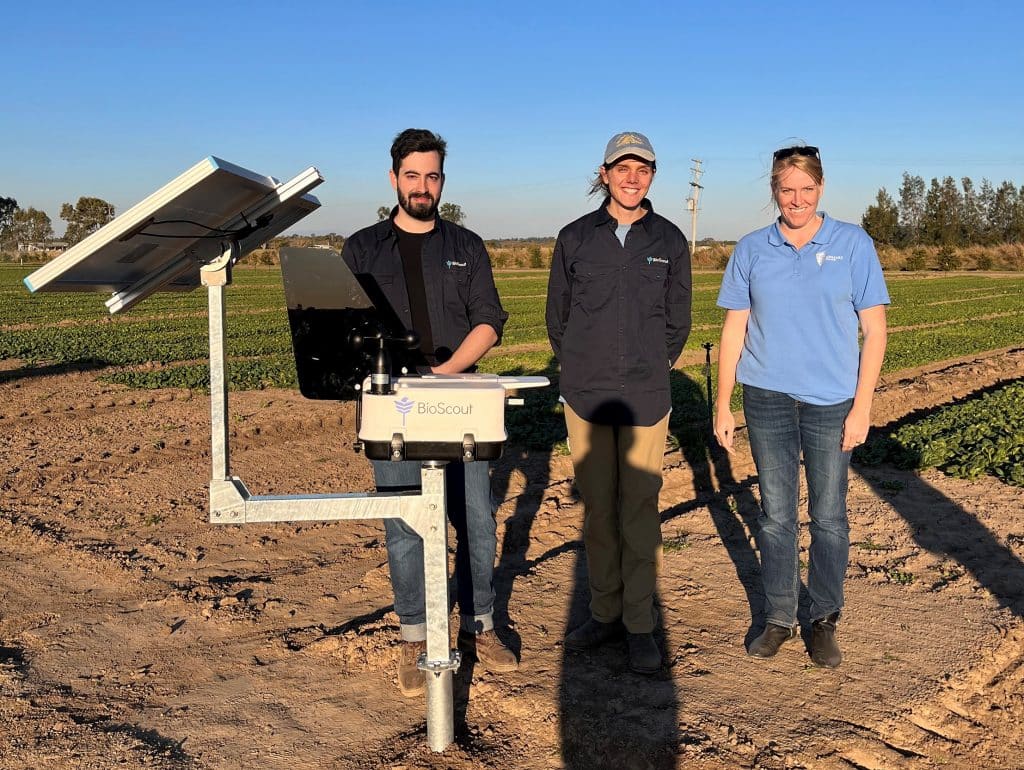
Bundaberg Region farms have participated in a CQUniversity-led research project into the impact of downy mildew on basil crops which has the potential to prevent yield losses that cost the industry millions each year.
In partnership with the Botanical Food Company, the project is coordinated by Research Officer Alison Jensen, as part of the Hinkler AgTech Initiative.
“We’re currently working with the Botanical Food Company (BFC) and herb growers to develop improved strategies for management of downy mildew, which can cause potentially devastating yield loss in basil crops,” Alison said.
“As part of this project, we monitor when and where downy mildew occurs and use AgTech for automated measurement of factors that contribute to disease development, such as environmental conditions and the concentration of airborne spores.
“We can then use this data to develop a predictive model (based on the historical conditions that lead to disease outbreaks) to estimate the likelihood of a disease outbreak in future.
“Growers involved in this project are already enthusiastic to see the data being collected, and so that in future they can make more informed decisions for crop management.”
The basil downy mildew trials have been completed in the Bundaberg area but are still being conducted in the Biloela region.
Interest in basil crop research grows from cane study
Alison has a long association with CQU, having completed her Bachelor of Science (Biology) with the University as an undergraduate.
After working in the sugarcane industry for several years and completing a Master of Plant Protection at the University of Queensland, Alison was introduced to CQU’s Professor Philip Brown and she went on to study a PhD as a three-year industry funded project, investigating pachymetra root rot management and sugarcane cultivar resistance.
During the final year of her undergraduate study, sugarcane smut was discovered for the first time near Bundaberg and Alison was involved in some of the early research work to develop strategies for smut management, which was the beginning of her interest in plant pathology.
The Hinkler AgTech Initiative helps growers to trial agricultural technologies (AgTech) in commercial farming systems and support industry adoption of AgTech products or services in the Bundaberg Region.
“My research work also includes predictive disease modelling, where we are investigating the potential application of AgTech to improve the accuracy of disease forecasts, so that growers can make informed decisions about when/where to apply control measures such as fungicide sprays.”
The Hinkler AgTech Initiative, which is responsible for the basil crop research, is funded through the Hinkler Regional Deal.
The Hinkler Regional Deal is a collaboration between the Australian Government, Bundaberg Regional Council and Fraser Coast Regional Council.




